
by Andrew Corbett | Mar 3, 2018 | Eschatology |
The End. That’s what the Greek word “eschaton” means. But a question that some are now asking is, “The end of what?” Up until recently most Christians would have said- the world, but now good Biblical scholarship is shedding greater light upon this highly controversial word and revealing that most of us may have been wrong!
When I went to church as a young boy, ‘End Times’ teaching was all the rage. Afterall, there were wars in the Middle East, famines in Africa, natural disasters in Asia, and economic struggles in Europe and America. There were conspiracy theories, global uncertainty, a worldwide fuel crisis, and the emerging cashless society. All of these things were apparently predicted in the Bible many thousands of years ago as being the last signs before the end of the world. As the last three decades have unfolded however, it has become obvious that none of these things have led to the end of the world, and now most people realise that the Bible doesn’t even make reference to them – let alone pinning the triggers for the end of the world upon them! With so much error in this speculation it’s little wonder that many Christians have put eschatology (the study of ‘final things’) either in the too-hard basket or now regard it as not worth worrying about because nobody knows anyway.
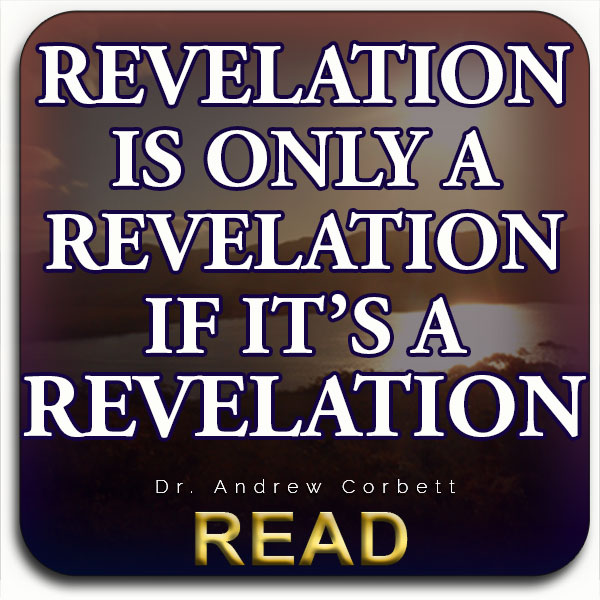
by Andrew Corbett | Feb 4, 2018 | Book of Revelation |
I was once dining with a theologian who had lectured on the Book of Revelation for years. He had even been to Patmos to conduct teaching tours of the Apocalypse. But like some theologians, he felt that Revelation was a complete enigma. He was adamant that there was not any particular method to understand everything in the Book of Revelation. His claim is believed by many. He cited Deuteronomy 29:29 to justify his belief that it was impossible to understand the Book of Revelation, claiming that The Apocalypse was a divine secret. But there is one immediate and gargantuen problem with this idea: for Revelation to be a revelation it has to be a revelation. There is a certain hang-over from Post-Modernism that makes the idea of the Book of Revelation being divinely vague very appealing. Post-Modernism relishes in the idea that nothing can be known for certain. It despises the notion of being ‘right’ and extols the notion of uncertainty. If it can not be understood, then it can never be a revelation!
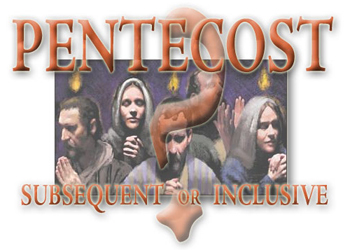
by Andrew Corbett | Dec 10, 2017 | Theology |
Even after a hundred years of modern Pentecostalism there are a growing number of people who are sympathetic to the modern availability of the gifts of the Spirit butreject the idea of them being only available to those who have had an experience ‘subsequent’ to their salvation generally referred to as the baptism in the Spirit.

by Andrew Corbett | Jul 11, 2017 | Bible Prophecy |
Recently, one of the world’s most listened to Bible teachers received a question from a listener about Christ’s failure to return “soon”. It’s actually a great question and is frequently responded to with answers from most popular Bible teachers that actually portrays the Bible as nonsensical! How this question is answered depends on the method we use to interpret any Scripture passage. Yet, using the principles of sound Bible interpretation is the very reason why such Bible prophecies about Christ’s “soon” return are a problem for the thoughtful Bible reader.

by Andrew Corbett | Jul 5, 2017 | Bible Prophecy |
One of the most heated recent theological debates centred around the notion of whether God not only knows the future, but whether He decrees it. On one side of the debate there are those who claim that the future is open even to God. They claim that the future is up for grabs. God, in their view, has expressed His desire for how He would like the future to unfold. In order for this to happen, because the future is open, God’s purpose needs people to move history toward this end. Those who have a closed view of the future strongly disagree with this assessment. But Bible Prophecy can help someone to grow in their confidence in the Bible as God’s Word.
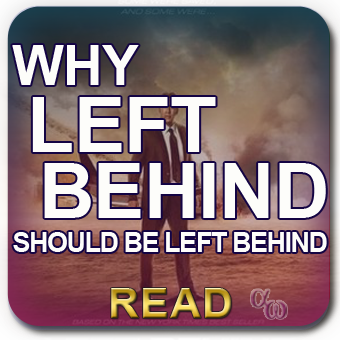
by Andrew Corbett | Apr 21, 2017 | Eschatology |
For LEFT BEHIND to be true it has to invent it’s own set of rules for Bible interpretation. What most LEFT BEHIND fans may be shocked to discover is that the pivotal sections of Matthew and Revelation upon which LEFT BEHIND is based was fulfilled by 70AD! And it had to be since that’s what Christ said!
“Assuredly, I say to you, this generation will by no means pass away till all these things take place.”
Matthew 24:34 (NKJV)
The highly aclaimed atheist, Bertrand Russell, said this verse alone was enough to discredit both the Bible and Jesus Christ!
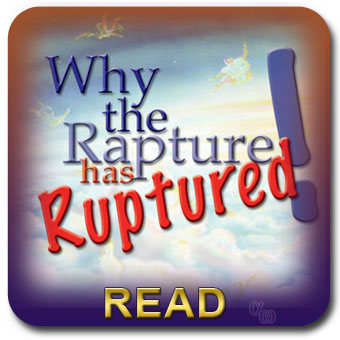
by Andrew Corbett | May 4, 2016 | Bible Prophecy |
Many believers have come to believe in a ‘rapture’ and that it is prophesied in the Bible without realising that it is only a fairly recent idea! When we look at the teaching of some of these Bible-Prophecy preachers it soon becomes apparent that the Bible does not teach a rapture!
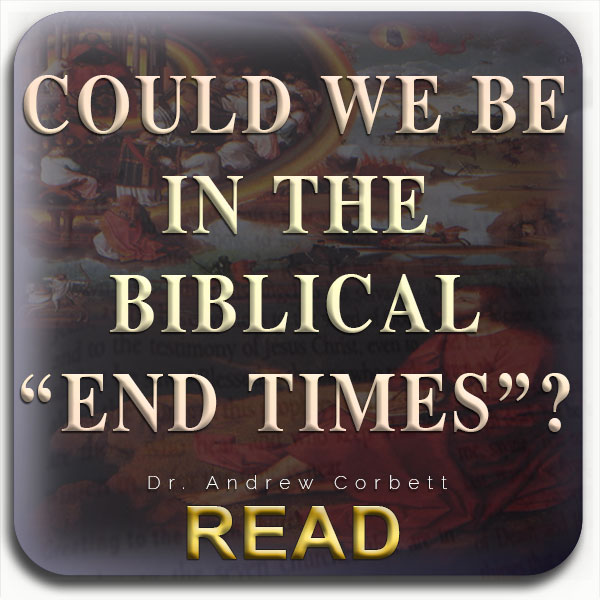
by Andrew Corbett | Apr 26, 2013 | Bible Prophecy, Book of Revelation, Eschatology |
Wars, earthquakes, floods, and famines have long been considered the traits of what many believe to be the Biblical description of the “end times”. Added to this is what many understand to be the predictions of increased apostasy, the rise in persecution, the deterioration of society’s morals, and the increased compromise and lukewarmness of the Church. And surely, if these are the characteristics of what the Bible describes as the last days, we must be in the last days, right? But are we? And if we are, so what? And if we aren’t, then what? But are we in what the Bible describes as the ‘end times’?









